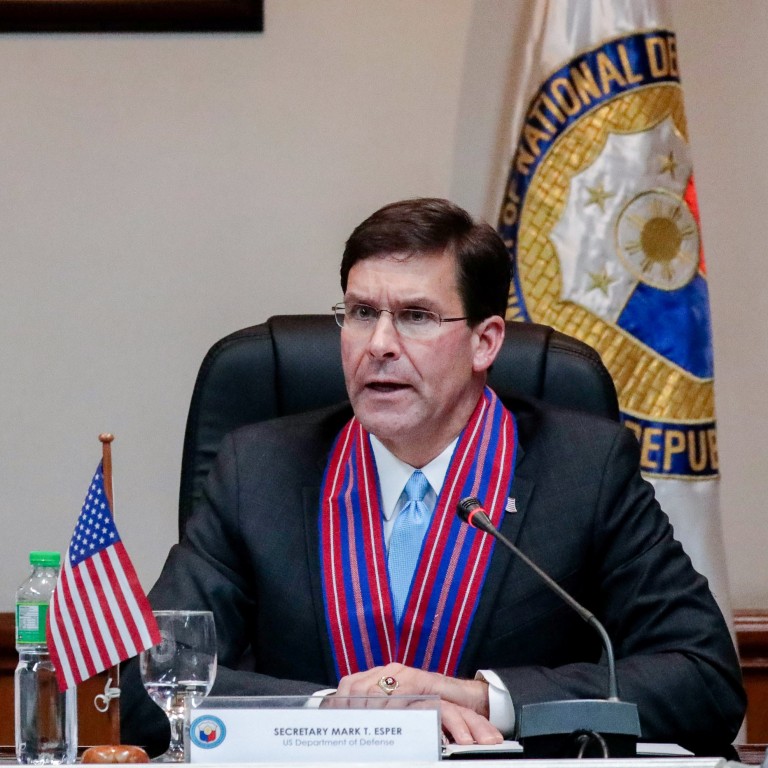
US to boost military alliance with Philippines as South China Sea tensions grow
- US Defence Secretary Mark Esper said the US would continue to conduct freedom-of-navigation operations in the South China Sea
- He stressed that such acts send a clear message that all countries should abide by international laws
Esper, who was in Manila for a one-day visit, said he and Philippine Defence Secretary Delfin Lorenzana discussed various ways to strengthen cooperation and further boost the two countries’ decades-old alliance.
“We look forward to train in future joint air and maritime patrols to improve our interoperability and to demonstrate our commitment to upholding the long-standing international rules and norms,” he said.
“I think it is incumbent upon all of us to take a very public posture and to assert our sovereign rights and to emphasise the importance of law,” he said.
Washington lays no claims to the disputed waters but has declared that freedom of navigation and overflight, and the peaceful resolution of the disputes are in the US national interest. China has repeatedly warned the US to stay out of what it calls a purely Asian dispute.
Philippine foreign secretary warns of ‘Chinese hegemony’ in Southeast Asia
Esper noted that the US has conducted more freedom-of-navigation operations in the past year than in the previous 20 years.
“The clear signal that we’re trying to send is not that we oppose China per se, but that we all stand for international rules and international laws and that we think China should abide by them as well,” he said.
“Acting collectively is the best way to send that message and to get China on the right path.”
In an Asian defence meeting that he attended in Thailand, Esper said most participants were “very concerned about China’s excessive claims” and its lack of compliance with international laws and norms.
In Bangkok, Esper briefly met his Chinese counterpart, General Wei Fenghe, on Monday on the sidelines of the Asian defence meeting. A spokesman for the Chinese Ministry of Defence, Colonel Wu Qian, told reporters in Bangkok that the South China Sea disputes were among numerous issues discussed by the two.

Wu said Esper and Wei had a “very positive and constructive” meeting and “agreed in many areas”. But he was clear that Beijing is irritated at the US Navy’s presence in the South China Sea.
Wei reaffirmed China’s commitment to safeguarding its “territorial sovereignty and maritime rights and interests” in the South China Sea, Wu said.
“The Chinese side also urges the US side to stop flexing muscles in the South China Sea and do not provoke and escalate tensions in the South China Sea,” Wu said through a Chinese interpreter.


